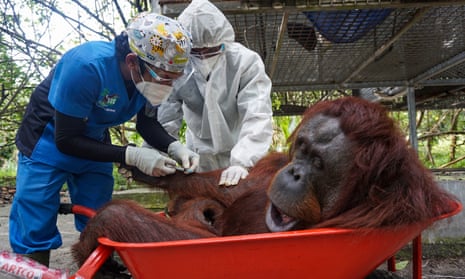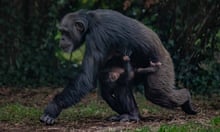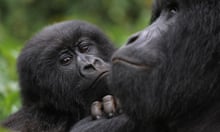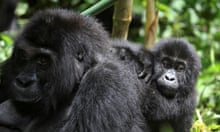Ten orangutans have been released back into the wild in the Indonesian part of Borneo island, with helicopters used to ferry the critically endangered great apes deep into the forest from rehabilitation centres.
The Bornean orangutans had all been in captivity before their rescue. They include Nenuah, a 19-year-old female who had been repatriated from Thailand, according to the Borneo Orangutan Survival Foundation (BOSF).
In total, five males, a mother with two babies, and two other females were released with assistance from Indonesian conservation agencies.
“Using a helicopter is the best way to transport orangutans during the pandemic,” said Denny Kurniawan, the BOSF programme manager, noting it would have taken three days of driving to reach one drop-off area, adding to the risk of Covid-19 transmission.
Orangutans and other apes are known to be susceptible to human respiratory illnesses, so veterinarians donned protective suits and masks during final medical checkups.
“Efforts to help curb the spread of the Covid-19 virus have hampered many conservation-related activities,” said Handi Nasoka, the acting head of Central Kalimantan’s conservation agency.
Lengthy periods spent in captivity mean that rehabilitation has been a slow process for some of the other orangutans that arrived with Nenuah in 2006, the foundation said in a statement, adding that most of the apes had found it difficult to develop the skills needed to fend for themselves in the wild.
There are only about 100,000 Bornean orangutans left in the wild, according to the World Wildlife Fund, because more than half the population has been depleted over the past 60 years.
They have suffered from illegal poaching, as well as destruction of habitat due to large-scale logging and replacement of forests with cash crops such as palm oil.









